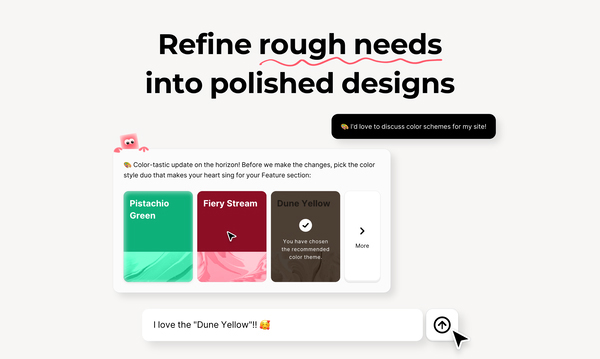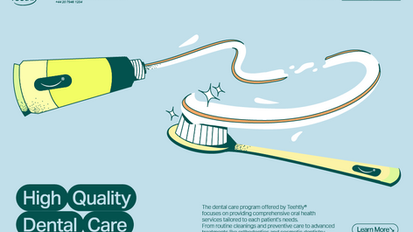Create Apa Reference from Website Checklist
Create Apa Reference from Website Solutions
Create Apa Reference from Website
As a small business owner, creating an online presence is essential in today’s digital world. A website serves as a virtual storefront where potential customers can learn more about your products or services, contact you, and ultimately make a purchase. However, building a professional-looking website can be daunting, especially if you don’t have any technical skills or experience.

Create Apa Reference from Website Resources
Create Apa Reference from Website
In this article, we will explore the process of web application development, including the key steps involved, the technologies used, and the best practices for creating a successful web application.
Key Steps in Web Application Development:
1. Planning and Requirements Gathering:
The first step in web application development is to gather requirements and define the scope of the project. This involves understanding the needs of the end-users, identifying key features and functionalities, and setting goals for the project. During this phase, it is important to collaborate with stakeholders to ensure that the project meets their expectations and aligns with the overall business objectives.
2. Design and Wireframing:
Once the requirements have been gathered, the next step is to create a design for the web application. This involves wireframing, which is a visual representation of the layout and structure of the application. The design should be user-friendly, visually appealing, and intuitive to navigate. It is important to consider factors such as responsive design, accessibility, and usability in the design phase.
3. Development:
The development phase involves writing code to build the web application based on the design and requirements gathered earlier. Developers use programming languages such as HTML, CSS, and JavaScript to create the front-end of the application, while back-end development involves using server-side languages such as PHP, Ruby, or Python to handle the logic and data processing.
4. Testing and Quality Assurance:
Once the web application is developed, it is important to conduct thorough testing to ensure that it functions correctly and meets the specified requirements. This involves testing for usability, performance, security, and compatibility across different devices and browsers. Quality assurance is essential to identify and fix any bugs or issues before the application is launched.
5. Deployment and Maintenance:
After testing is complete, the web application is deployed to a server or hosting platform where it can be accessed by users. It is important to monitor the performance of the application and make updates as needed to ensure that it remains secure, functional, and up-to-date. Regular maintenance is key to the long-term success of a web application.
Technologies Used in Web Application Development:
There are a wide range of technologies that can be used in web application development, depending on the requirements of the project. Some of the most popular technologies include:
– Front-end frameworks such as React, Angular, and Vue.js, which are used to build interactive user interfaces.
– Back-end frameworks such as Ruby on Rails, Django, and Express.js, which provide the structure and functionality for the back-end of the application.
– Databases such as MySQL, MongoDB, and PostgreSQL, which are used to store and manage data for the application.
– Cloud services such as AWS, Microsoft Azure, and Google Cloud Platform, which provide scalable and flexible infrastructure for web applications.
– API services such as REST and GraphQL, which allow web applications to communicate with external systems and services.
Best Practices for Web Application Development:
To ensure the success of a web application, it is important to follow best practices throughout the development process. Some key best practices include:
– Following a structured development process, including planning, design, development, testing, and deployment.
– Implementing security measures to protect the application from cyber threats and data breaches.
– Using responsive design to ensure that the application is accessible and functional across different devices and screen sizes.
– Optimizing performance to improve the speed and efficiency of the application.
– Conducting usability testing to gather feedback from users and make improvements to the application.
– Regularly updating and maintaining the application to fix bugs, add new features, and stay current with technology trends.
An SEO audit is a thorough examination of a website’s performance in terms of search engine optimization. It involves analyzing various elements such as on-page and off-page optimization, technical aspects, content quality, and user experience. By conducting an SEO audit, businesses can identify areas of improvement, fix any issues that may be hindering their SEO efforts, and ultimately improve their website’s visibility and ranking on search engines.
There are several key steps involved in conducting an SEO audit:
1. Reviewing Keywords and Content: One of the first steps in an SEO audit is to review the website’s keywords and content. Are the keywords relevant to the business and its target audience? Are they used strategically in titles, headings, meta tags, and throughout the content? Is the content high-quality, informative, and engaging? Analyzing keywords and content is essential for ensuring that the website is optimized for relevant search queries and provides value to visitors.
2. Checking On-Page Optimization: On-page optimization refers to the elements on a webpage that can be optimized for search engines, such as meta tags, headings, images, and internal links. During an SEO audit, it is important to check that these elements are properly optimized with relevant keywords and that they comply with best practices for SEO. This helps search engines understand the content of the website and rank it accordingly.
3. Assessing Technical SEO: Technical SEO involves optimizing the technical aspects of a website to improve its crawlability, indexability, and overall performance in search engines. This includes factors such as site speed, mobile-friendliness, URL structure, and sitemap. By assessing technical SEO during an audit, businesses can identify any issues that may be impacting their website’s visibility and address them to improve their overall SEO performance.
4. Evaluating Backlinks and Off-Page SEO: Backlinks are a crucial ranking factor in SEO, as they indicate the credibility and authority of a website. During an SEO audit, it is important to evaluate the website’s backlink profile to ensure that it is diverse, high-quality, and free from spammy links. Additionally, off-page SEO factors such as social signals, local citations, and online reviews should be considered to enhance the website’s authority and reputation in the eyes of search engines.
5. Monitoring User Experience: User experience plays a significant role in SEO, as search engines prioritize websites that provide a positive and seamless experience for visitors. During an SEO audit, it is important to assess factors such as page layout, navigation, mobile responsiveness, and loading times to ensure that the website meets user expectations and encourages engagement and conversions.
In addition to these key steps, there are several tools and techniques that can be used to conduct an SEO audit effectively. These include:
– Google Analytics: Google Analytics provides valuable insights into website traffic, user behavior, and engagement metrics, which can help identify areas of improvement for SEO.
– Google Search Console: Google Search Console offers data on website performance, indexing status, and search queries, allowing businesses to monitor and optimize their presence in Google search results.
– SEO Auditing Tools: There are several SEO auditing tools available, such as SEMrush, Moz, and Ahrefs, that can analyze various aspects of a website’s SEO performance and provide recommendations for improvement.

Create Apa Reference from Website Resources
Create Apa Reference from Website
In conclusion, building a one pager website is a simple and cost-effective way to establish an online presence for your business. By following the steps outlined in this article, you can create a visually appealing and informative website that effectively promotes your brand and attracts new customers. So why wait? Start building your one pager website today and take your business to the next level.


